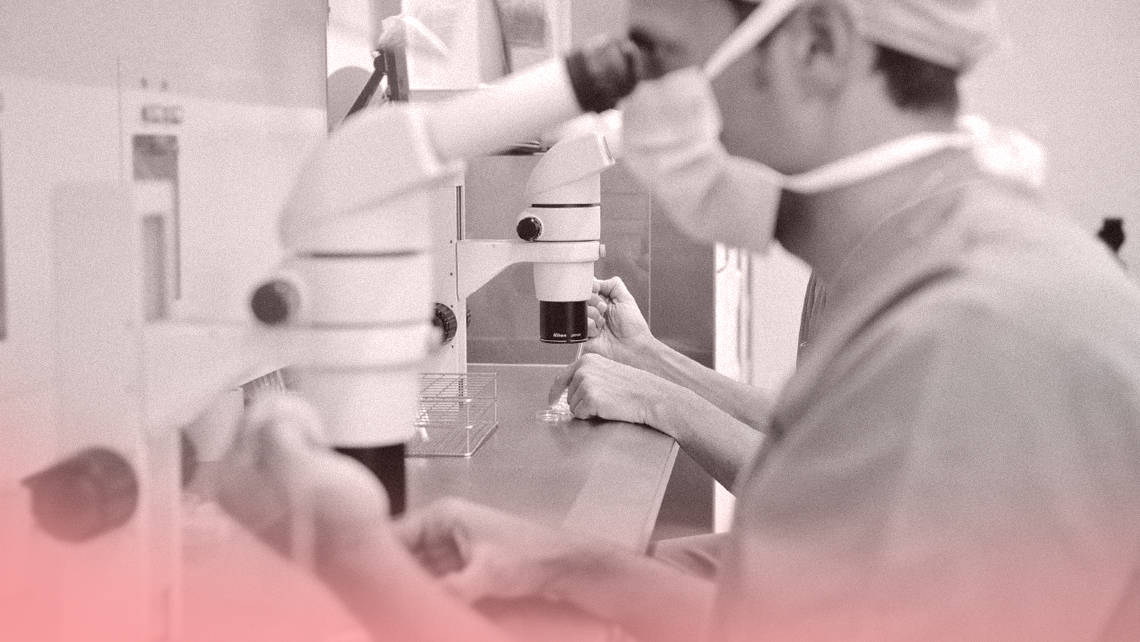
How can I help my IVF treatment to work? 10 pieces of advice that may improve your chances
What can I do to get that positive result? How can I help my in vitro fertilisation (IVF) treatment to work? Numerous factors have an impact on the success of in vitro fertilisation and getting pregnant. Living a healthy lifestyle, avoiding toxic habits, using medication appropriately and the following these 10 recommendations and pieces of advice, such as avoiding the use of perfume or ensuring that your bladder is full on the transfer day, may be a great help.
Índice
Balanced weight
- Weight can have an impact on fertilisation. Being overweight is not advised and being excessively underweight does not help the success of treatment. A healthy diet helps ova to remain healthy and the body to be receptive to pregnancy. Therefore, eating well and a correct intake of vitamins are vital. The risk of fertility issues is three times greater in people who are overweight because of hormonal abnormalities, abnormalities in the menstrual cycle or anovulation. There is also an increased risk of complications during pregnancy.
Avoiding toxic habits
- We are not always aware of how much we expose our bodies to toxic habits. Smoking, coffee and alcohol are factors that can affect fertility and the success of IVF treatment. Smoking – be this active or passive – increases the risk of pregnancy loss, causes changes to the menstrual cycle, reduces ovarian reserve and decreases anti-mullerian hormone levels. Research has also proven that smoking can affect how the oocyte travels through the fallopian tubes, its chances of fertilising and early embryo development. Female smokers have a lower pregnancy rate and it has been proven that an addiction to smoking even affects the fertility of future offspring.
Emotional reinforcement
- Being emotionally prepared is also a help and, with this in mind, all Instituto Bernabeu patients have access to a psychologist specialising in fertility at no additional cost so that they are emotionally prepared before treatment begins in order to face the range of emotions they are likely to go through.
Rigour following pharmacological guidelines
- Sticking to drug administration times and ensuring that medication is taken at the same time every day is also very important in improving chances of success during assisted reproduction treatment. If vaginal tablets have been prescribed, patients are advised to lie down for a few minutes after administration so that the tablets can be absorbed as much as possible.
Respect the cold chain
- Additionally, if drugs need to be refrigerated, it is essential that the cold chain is not broken and that they are stored at the recommended manufacturer temperature. Using a cooler bag in order to avoid changes in temperature when making the purchase at the pharmacy is good practice.
Evaluate possible pharmacological contraindications
- Patients should mention any other drugs they are taking to their gynaecologist so that any contraindications that may affect the cycle can be ruled out.
Full Bladder
- When embryo transfer is due to take place, the patient should feel the need to urinate on arrival at the clinic. Liquid in the bladder helps to get the most suitable view of the best place to position the embryo.
Natural environment
- Transfer must take place under circumstances that are as similar to the natural process in the uterus as possible. This is why avoiding using perfume, deodorant and creams with a strong aroma that may have an impact on the environment is advised.
Healthy living
- Ensure that your lifestyle is healthy. Rest, have a healthy diet and do light exercise.
Personalize the treatment
- Obviously, the key to getting the very best prognosis consists of putting oneself in the hands of experts who are specialists that personalise treatment, study each case carefully and use the very latest technology.
If you have any questions, please do not hesitate to ask.
